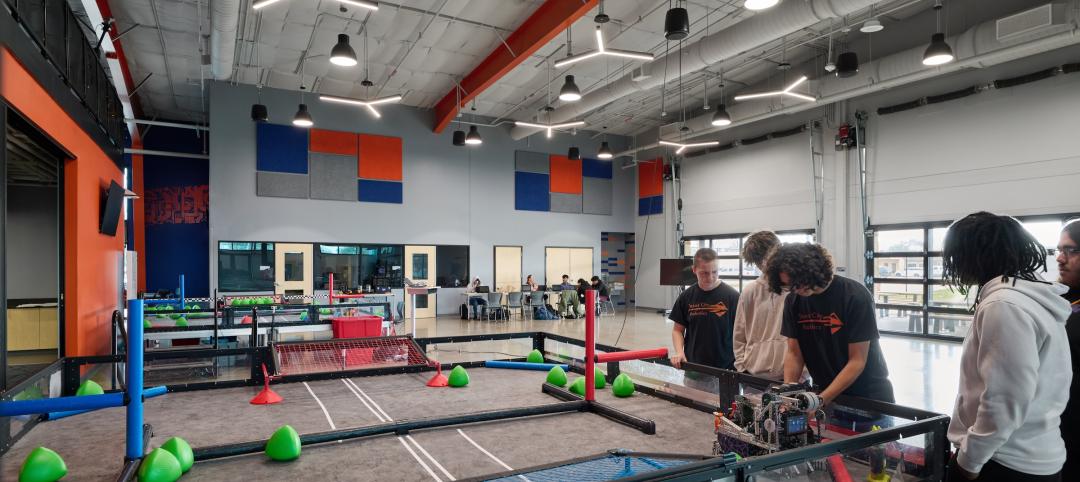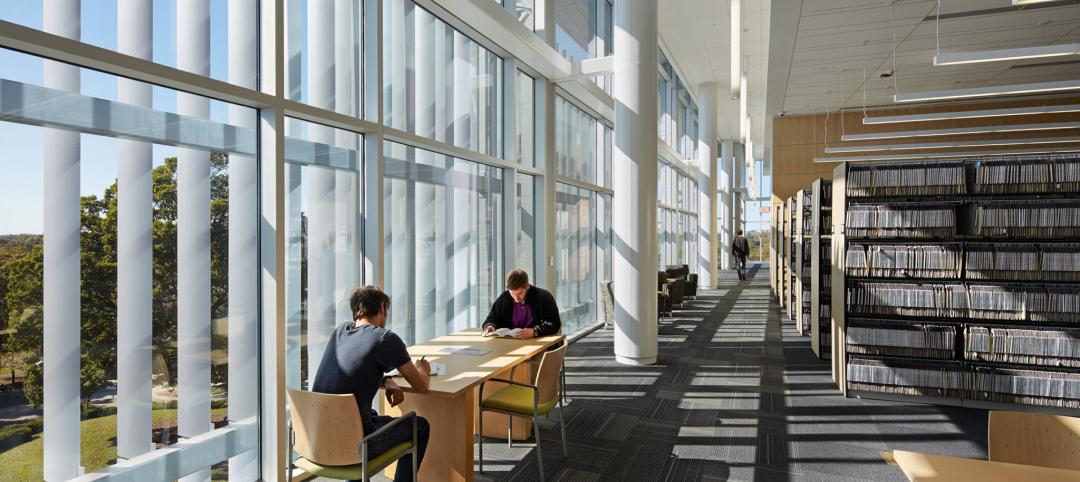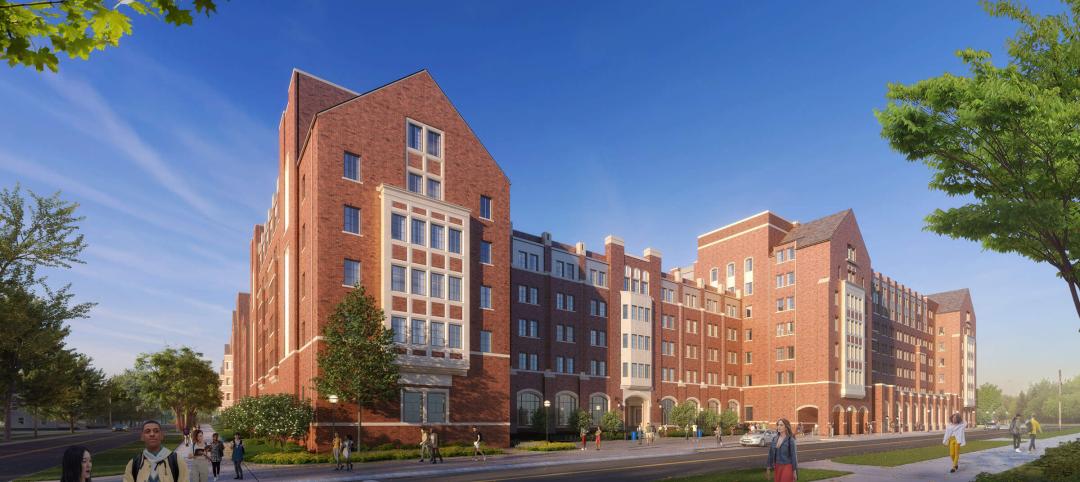Introduced in 2009, the American Institute of Architects (AIA) 2030 Commitment Program, a voluntary initiative for architecture firms and other entities in the built environment to commit their practice to advancing the AIA’s goal of carbon neutral buildings by the year 2030, has produced a report assessing their work.
“There is some very encouraging data in this report that shows how architects are making measurable progress towards reducing the carbon emissions in their design projects,” said AIA Chief Executive Officer, Robert Ivy, FAIA. “But one of the major findings from our research is that in order to maximize the energy efficiency of buildings and to realize our ultimate goal of carbon neutral buildings, energy modeling must become a standard part of the design practice.”
The key findings from a new report, 2030 Commitment 2013 Progress Report, include:
- 401 design projects are meeting the 60% carbon reduction target – a 200% increase from 2012
- 2,464 projects have been accounted for in this report – a 150% increase form 2012
- 1.6 billion gross square feet (GSF) represented in this data – a 9% increase from 2012
- 66% of total GSF using energy modeling to predict operational energy consumption – a 14% increase form 2012
- 19% average firm reduction in Lighting Power Density for interior projects – a increase of 2% from 2012
- 34% average Predicted Energy Use Intensity reduction reported by firms – a decrease of 3% from 2012
- 7% of total GSF meeting the current 60% carbon reduction target – a decrease of 7% from 2012
- 99 firms submitted reports – a 10% decrease from 2012
The decrease in firms reporting data is mainly attributed to the time and effort involved in tracking and entering project data. To address that situation, the AIA has partnered with the Department of Energy to create the 2030 Design Data Exchange to provide a more user friendly interface and allow firms to anonymously research how their projects are predicted to perform compared to similar projects in the AIA 2030 Commitment portfolio. This new reporting tool will be made available in late December 2014 or early January 2015.
For a preview of the functionality of the 2030 Design Data Exchange, click here.
Related Stories
K-12 Schools | Aug 8, 2024
New K-12 STEM center hosts robotics learning, competitions in Houston suburb
A new K-12 STEM Center in a Houston suburb is the venue for robotics learning and competitions along with education about other STEM subjects. An unused storage building was transformed into a lively space for students to immerse themselves in STEM subjects. Located in Texas City, the ISD Marathon STEM and Robotics Center is the first of its kind in the district.
Affordable Housing | Aug 7, 2024
The future of affordable housing may be modular, AI-driven, and made of mushrooms
Demolished in 1989, The Phoenix Ironworks Steel Factory left a five-acre hole in West Oakland, Calif. After sitting vacant for nearly three decades, the site will soon become utilized again in the form of 316 affordable housing units.
Architects | Aug 5, 2024
Mastering the art of project schedule: Expert insights on design and construction
We sat down with two experts in the design field, Ron Dick (Founding Partner and Architect) and Mike Niezer (COO and Architect), to talk about everything you need to know about the entire process.
University Buildings | Aug 1, 2024
UC Riverside’s student health center provides an environment on par with major medical centers
The University of California, Riverside's new Student Health and Counseling Center (SHCC) provides a holistic approach to wellness for students throughout the UC Riverside campus. Designed by HGA and delivered through a design-build partnership with Turner Construction Company, SHCC provides healthcare offerings in an environment on par with major medical centers.
Libraries | Aug 1, 2024
How current and future trends are shaping the libraries of tomorrow
Over the last few years, public libraries have transitioned from being buildings that only store and lend books to being fully featured community centers.
MFPRO+ News | Aug 1, 2024
Canada tries massive incentive program to spur new multifamily housing construction
Canada has taken the unprecedented step of offering billions in infrastructure funds to communities in return for eliminating single-family housing zoning.
Government Buildings | Aug 1, 2024
One of the country’s first all-electric fire stations will use no outside energy sources
Charlotte, N.C.’s new Fire Station #30 will be one of the country’s first all-electric fire stations, using no outside energy sources other than diesel fuel for one or two of the fire trucks. Multiple energy sources will power the station, including solar roof panels and geothermal wells. The two-story building features three truck bays, two fire poles, dispatch area, contamination room, and gear storage.
Contractors | Aug 1, 2024
Nonresidential construction spending decreased 0.2% in June
National nonresidential construction spending declined 0.2% in June, according to an Associated Builders and Contractors analysis of data published today by the U.S. Census Bureau. On a seasonally adjusted annualized basis, nonresidential spending totaled $1.21 trillion. Nonresidential construction has expanded 5.3% from a year ago.
Student Housing | Jul 31, 2024
The University of Michigan addresses a decades-long student housing shortage with a new housing-dining facility
The University of Michigan has faced a decades-long shortage of on-campus student housing. In a couple of years, the situation should significantly improve with the addition of a new residential community on Central Campus in Ann Arbor, Mich. The University of Michigan has engaged American Campus Communities in a public-private partnership to lead the development of the environmentally sustainable living-learning student community.
MFPRO+ New Projects | Jul 31, 2024
Shipping containers converted into attractive, affordable multifamily housing in L.A.
In the Watts neighborhood in Los Angeles, a new affordable multifamily housing project using shipping containers resulted in 24 micro-units for formerly unhoused residents. The containers were acquired from a nearby port and converted into housing units at a factory.
















